Overview
Visiting Angkor Wat in the rainy season offers a very different charm compared to the dry months. While many travelers prefer sunshine, I find that the monsoon brings out the true colors of Cambodia – lush greenery, full moats, and a refreshing coolness in the air. On October 1st, I captured two photos during a gentle downpour around 2:30 PM – a typical afternoon during this season.
A Brief History of Angkor Wat
Angkor Wat, meaning “City of Temples,” was built in the early 12th century by King Suryavarman II. Originally a Hindu temple dedicated to Vishnu, it later became a Buddhist site. It is the largest religious monument in the world and a symbol of Cambodian pride, even appearing on the national flag. Its intricate carvings, massive moat, and towering central spires continue to amaze visitors from around the world.
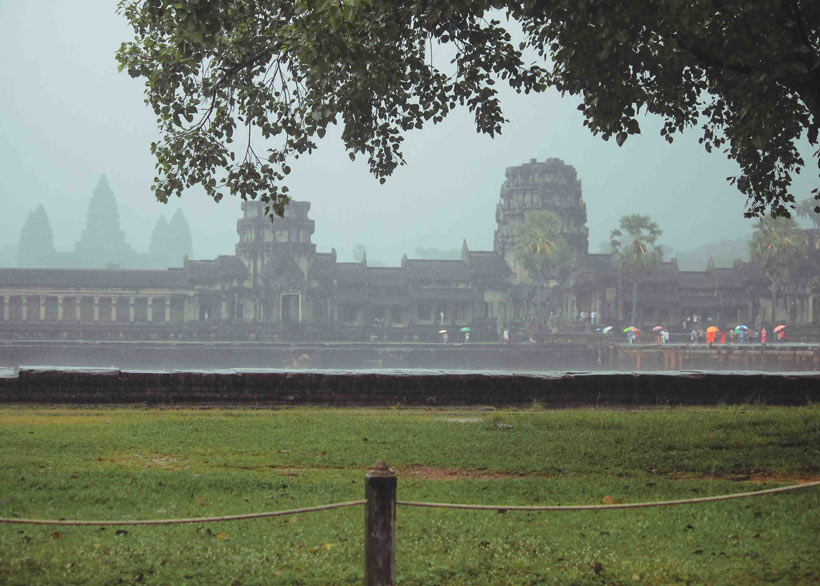
My Rainy Season Experience
On this October afternoon, the sky was cloudy, and rain began to fall as I reached the temple grounds. At 2:30 PM, Angkor Wat was cloaked in mist, its towers faintly visible behind a curtain of rain. It was quiet, with fewer tourists, creating a peaceful and almost spiritual atmosphere.
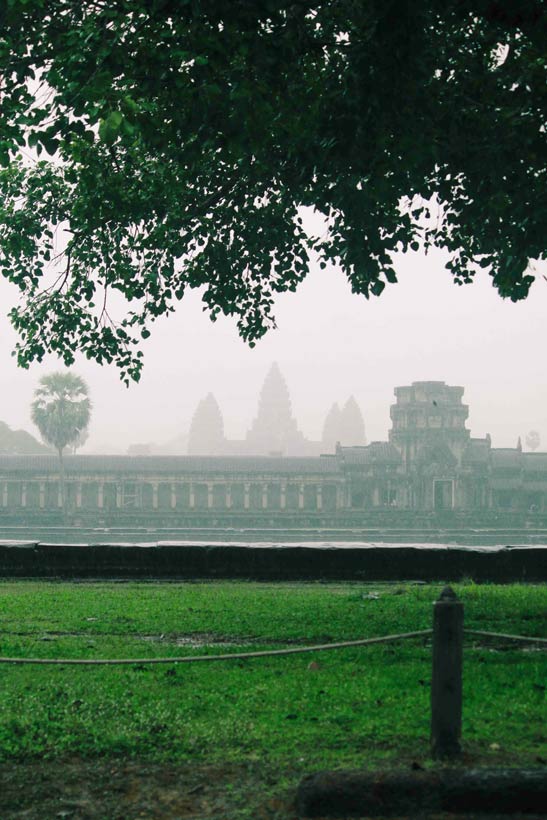
The surroundings were beautifully green, the grass soft and vibrant. Water filled the moats and ponds, reflecting the temple’s silhouette. I walked along the path, watching locals and monks with umbrellas and raincoats sharing smiles in the rain. This is the charm of Cambodia’s wet season – unpredictable, but deeply memorable.
If you plan to visit during this time, don’t forget to pack a raincoat or umbrella in your backpack!
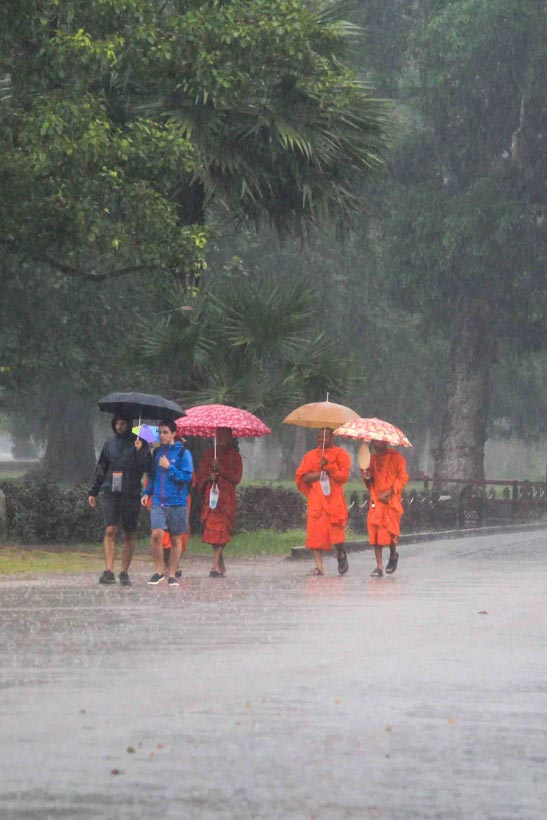
Short Video
How to Get There
Angkor Wat is located about 6 km from Siem Reap city. Here’s how to get there:
By tuk-tuk: The most common and affordable way. You can hire a tuk-tuk for the day.
By bicycle: If you’re feeling adventurous and the rain isn’t too heavy, cycling is a scenic way to explore.
By car or taxi: More comfortable during heavy rain.
Entry: A one-day Angkor Pass is required (available at the Angkor Ticket Office).
Frequently Asked Questions
Q: Is it worth visiting Angkor Wat in the rainy season?
A: Yes! It’s less crowded, cooler, and the temple surroundings are at their greenest. Just prepare for occasional rain showers.
Q: What should I bring for a rainy season visit?
A: Bring a raincoat or umbrella, waterproof shoes, and a dry bag for your camera or phone.
Q: Are the temples still open during the rain?
A: Yes, Angkor Wat and other temples remain open year-round, rain or shine.
Q: What time is best for visiting in the rainy season?
A: Mornings are often dry, but even afternoon rains like the one I experienced can be beautiful and atmospheric.
Photo by Sathya Moth

Map
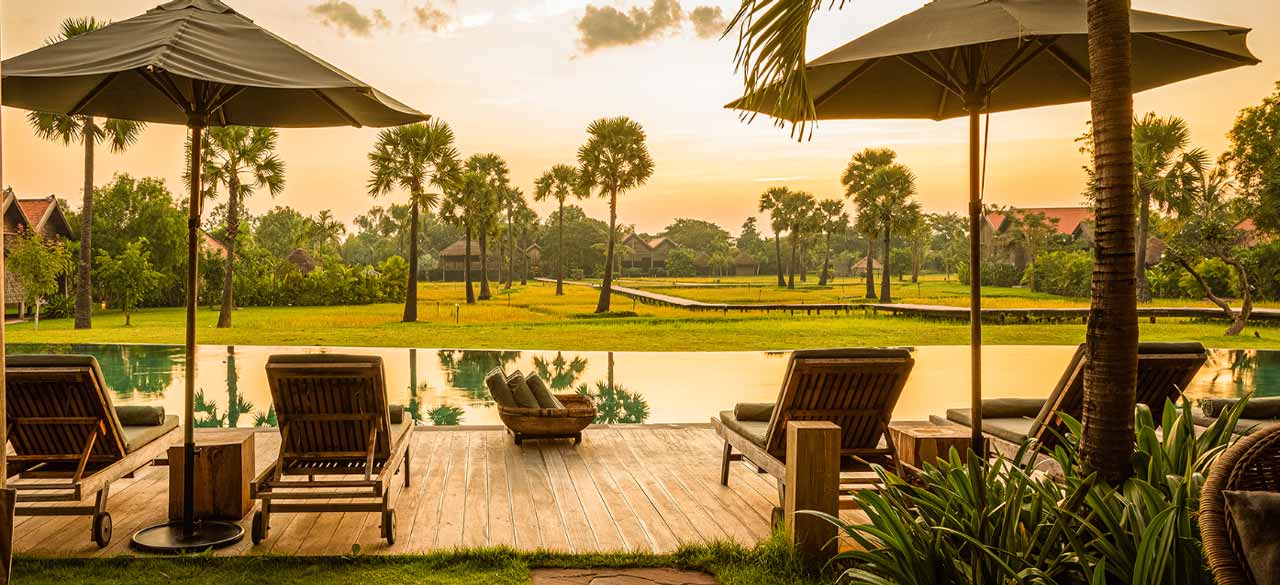
BEST Hotels in Siem Reap
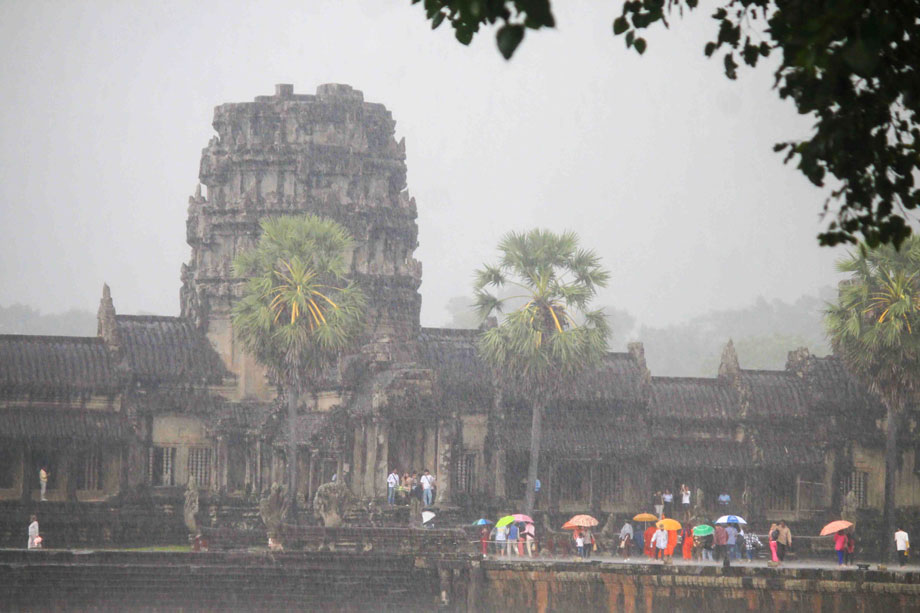
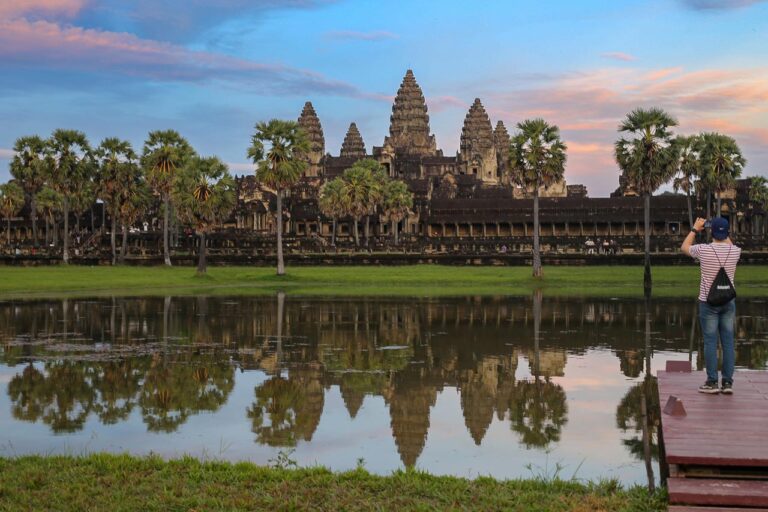
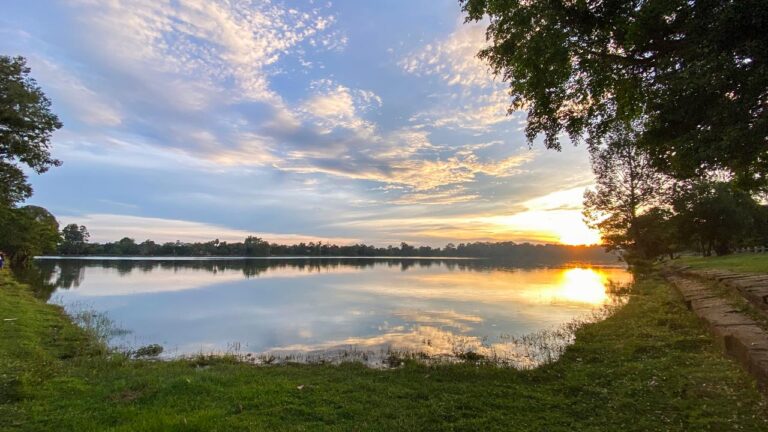
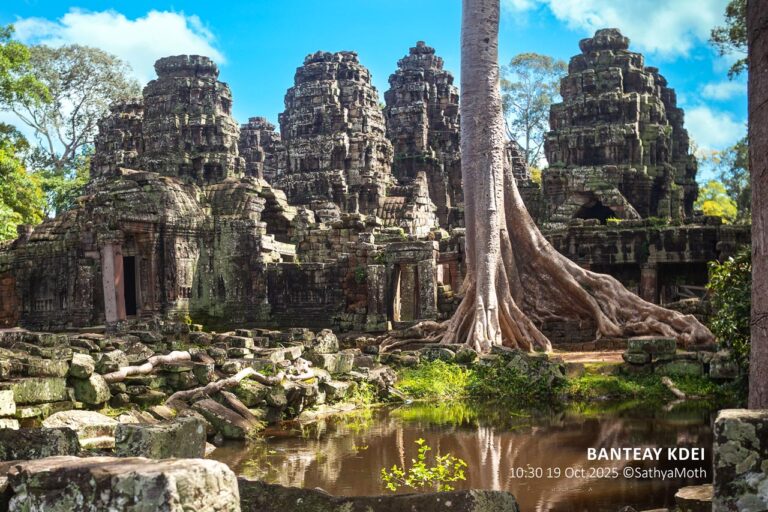
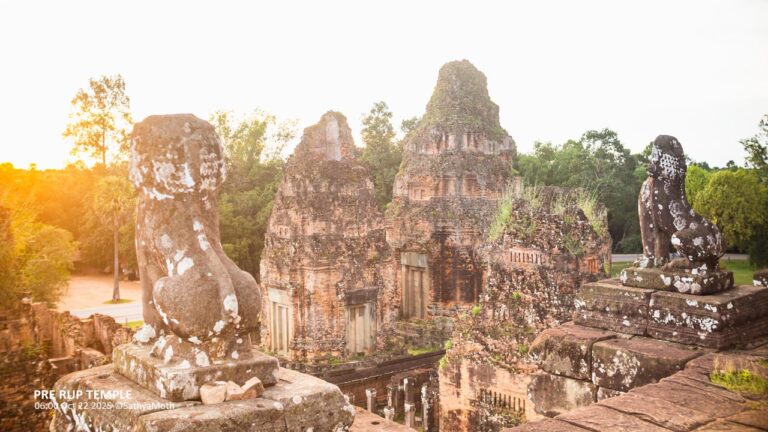

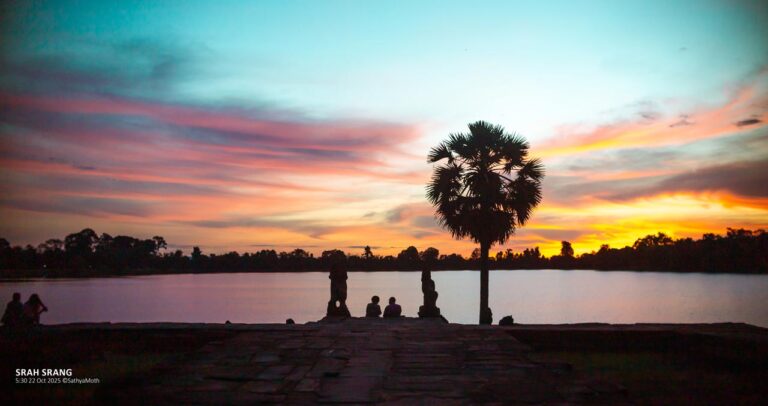
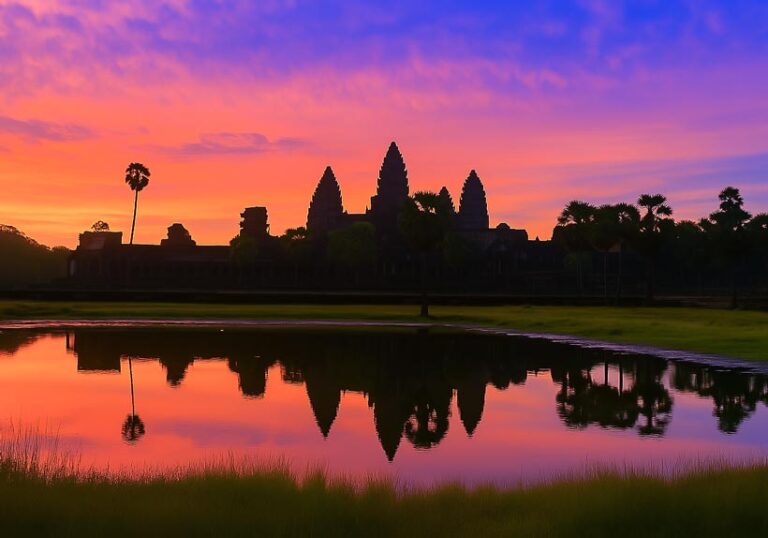
Leave a Reply